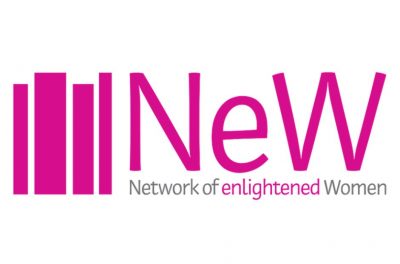By Alex Ross (contributor)
There is more to the Boston University chapter of Network of Enlightened Women than the name implies. While they’re an all-college-aged group focused on female empowerment, the name doesn’t advertise the group’s political loyalties.

Members of NeW lean conservative, which poses a challenge in one of the country’s most liberal states. President Donald Trump talks about his silent majority, but this particular demographic is busy trying to find its voice.
NeW’s Vice President Alex Corey, a senior in the College of Communication, said the group aims to provide a platform for conservatives who feel uncomfortable expressing their beliefs openly.
“This group is all about empowering women who feel like they can’t speak up,” Corey said. “It’s for anyone who just feels like, ‘My views won’t be accepted anywhere else.’”
Former Massachusetts Republican Party Chair Jennifer Nassour has spent much of her career uniting female conservatives, having founded The Pocketbook Project, a nonprofit organization committed to electing women to office. She said she understands the need for a group like NeW.
During her undergraduate years at Stony Brook University, Nassour did not have a community with whom to share her beliefs. She said she knows how it feels to be a conservative woman on a college campus, because she was one herself.
“Because I’m a woman, [people think] I should automatically be a Democrat,” Nassour said. “And college campuses are sadly so skewed left they don’t allow for civil dialogue about bipartisan politics.”
A reported 38 percent of American women identified as Republican during the past two years, compared to 56 percent who identified as Democrat, according to a Pew Research Center survey. The study also found 65 percent of college-educated women identified as Democrats in 2018 and 2019.
Seth Blumenthal, a senior lecturer in BU’s Arts and Sciences Writing Program, researches 20th century conservative politics. He said this “strain of conservatives” has been around since the 1960s and has not changed dramatically.
“Young voters after 1968, women, did play a crucial role in Nixon’s campaign,” Blumenthal said. “‘Nixonettes … were a response to the challenges of gender roles.”
Last Fall, a campus-wide debate broke out at BU over the First Amendment, when Young Americans for Freedom, a youth activism group for conservative students, invited political pundit Ben Shapiro to speak.
Corey, a member of YAF, said this event called attention to people who consider hate speech to be speech that “doesn’t align with their opinion.”
“A lot of people will shut down conservative views,” Corey said, “versus conservatives who will say, ‘Well, we want to hear where you’re coming from, we’re going to say what we feel and we’re not going to try to shut you down.’”
Corey said she watched Fox News with her parents growing up, which she said formulated much of her early political life. The 2008 presidential election, she added, was when she first began to examine her political views.
“I didn’t understand much back then,” Corey said, “but that’s when I first started to realize, ‘Oh, I think differently politically than the other kids at school.’”
COM senior Mia Cathell is also a member of YAF and comes from a family of Democrats who turned Republican under former President Barack Obama.
Cathell spent her school days talking with friends in favor of Trump, but said she didn’t “jump on the Trump train” until she became politically active as a freshman in college thanks to Shapiro.
“It was meeting your hero, because [Shapiro] introduced me to the conservative movement,” Cathell said. “He’s the father of everything that ushered all my values in.”
Cathell is now a proud and vocal Trump supporter who said she understands she, as an Asian-American woman, isn’t a “stereotypical” supporter.
“I think Trump is really embodying what conservatism is empirically, because we hold our values before the identity politics of it all,” Cathell said. “That’s what a lot of people who have bucked the narrative have shown.”
Corey also deviates from the typical Trump supporter stereotype: she is young, female and not devoutly religious. Corey declined to comment publicly on her choice for president.
“I just feel that people should be able to vote for whoever they want to vote for and not be intimidated or be basically coerced into voting for somebody,” Corey said. “I’ve seen a lot of fear tactics happening on both sides.”
NeW refrained from endorsing any one candidate for president, citing the group’s broader aim to “educate, equip and empower” its members.
Echoing the focus of both her Pocketbook Project and of NeW, Nassour said the first step toward female empowerment is encouraging more women to run for office.
“The messaging from party leaders is coming from a male-[dominant] voice,” Nassour said. “Women are able to communicate a kinder message … we also have to explain why we are what we are.”
Corey and Cathell said they know there’s value in raising their voices.
“We were kind of like this gold in a gold mine,” Cathell said, “because the stereotypical Trump supporter is this middle-aged rural truck driver.”
*Mia Cathell was an associate city editor during the Fall 2019 semester.










































































































Sophie • Nov 5, 2020 at 7:29 pm
Yikes…